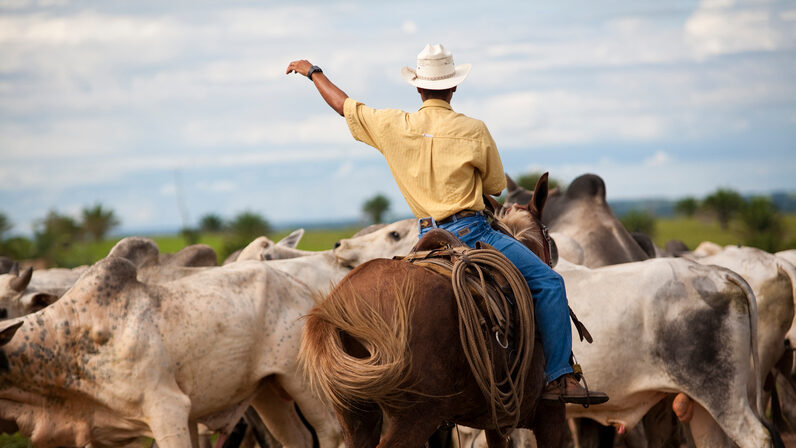US President Joe Biden has promised to “work with Congress” to fund the protection of the Amazon rainforest, after meeting with Brazil’s new president Lula da Silva.
On Friday, Lula visited Washington DC to meet with Biden at the White House. The US government’s summary of the meeting says “the United States announced its intent to work with [the US] Congress to provide funds for programs to protect and conserve the Brazilian Amazon, including initial support for the Amazon Fund, and to leverage investments in this critical region”.
The Amazon Fund is a pot of money administered by the Brazilian Development Bank which is spent on forest protection projects like small-scale farming and management of forests by indigenous people.
The $1.2 billion fund was suspended under Bolsonaro but revived on Lula’s first day in office. It is funded by Norway and Germany and the UK is considering a donation too. The US has never financially backed it before.
“Significant change”
When running to become president in 2020, Biden promised that if elected he would mobilise “the hemisphere and the world” to provide $20bn in public and private money to protect the world’s biggest rainforest.
When he came to power, his administration tried unsuccesfully to negotiate with far-right Brazilian president Jair Bolsonaro, who oversaw a spike in rainforest destruction and was hostile to what he claimed was foreign interference in Brazil’s affairs.
In January 2023, left-wing president Lula took power on a promise to end deforestation by giving more power to the environmental protection agencies gutted by Bolsonaro.
Missed deadline raises risk of delays to loss and damage fund
Natalie Unterstell, president of Brazilian think-tank Talanoa Institute, told Climate Home that a US donation to the Amazon Fund would be “a significant change in the way the US deals with climate finance for Brazil as it shifts the resources to Brazilian governance instead of acting through a cooperation agency.”
“It’s quite positive. This is an important gesture and a first step from the perspective of rebuilding the bilateral relationship between the countries. But we will need a billion-dollar strategy, not a million-dollar one, to achieve zero deforestation in this decade,” she added.
Limited budget
But the US has a poor record of delivering public climate finance, consistently giving less than much smaller European economies. The president has to negotiate with Congress over how to spend their budget, gaining the support of 60 of the 100 US Senators and a majority in the House of Representatives.
For the September 2022 to October 2023 fiscal year, Biden asked Congress for $11.4 billion for international climate finance but received only $1bn.
Biden was criticised for not fighting hard enough against Republicans in Congress for that finance. Diana Movius, forest lead at Climate Advisers, told a press briefing last week: “In those last minute budget negotiations with high level folks from both parties and from the administration that finance was likely not prioritised”.
UN budget cuts hindered response to Pakistan’s extreme floods
Since then, Biden’s Democrats have lost control of one part of Congress – the House of Representatives – while having just a slim majority in the Senate.
Joe Thwaites, an international climate finance advocate at the Natural Resources Defense Council (NRDC), said this will make it harder for Biden to get more climate finance when he makes his next budget request in the coming months.
In the October 2022 to September 2023 fiscal year, the Biden administration could give money to the Amazon Fund by drawing upon money earmarked for international development but, Meyer said, there was a lot of competition for this “fairly limited pool of funds”.
Renewed talks
E3G analyst Alden Meyer said that environmentalists would need to “work to block likely efforts to cut international climate funding”.
But both Meyer and Thwaites said that Republicans have tended to support tree-planting and tropical forest conservation more than other climate measures.
Denmark to put CO2 in seabed in step towards carbon negativity
Biden and Lula agreed to re-instate a joint working group on climate change which was set up in 2015 before being disbanded at the end of the year.
The working group will discuss cooperation on topics which include fighting deforestation, supporting clean energy deployment, adapting to climate change, making farming more climate-friendly and enhancing the bioeconomy.
Izabella Teixera was involved in the working group as Brazil’s environment minister between 2010 and 2016. She told Climate Home it had worked well, as then presidents Barack Obama and Dilma Rousseff were involved and influenced the talks at the highest level.
